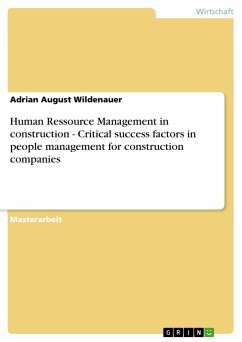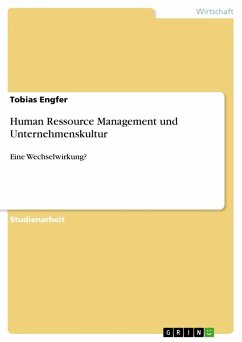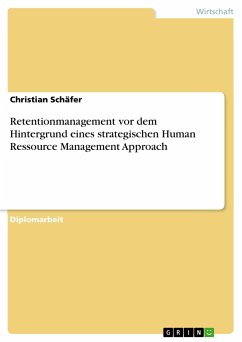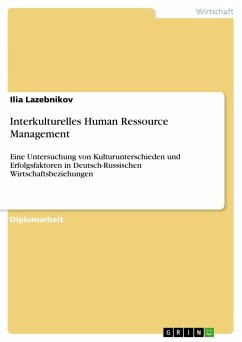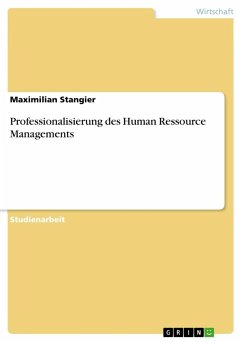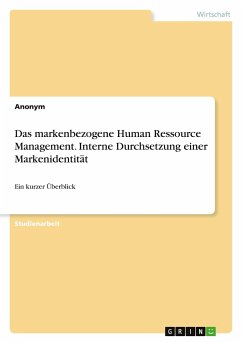Masterarbeit aus dem Jahr 2003 im Fachbereich Führung und Personal - Sonstiges, Note: 77%, Waterford Institute of Technology, Sprache: Deutsch, Abstract: ABSTRACTMany construction organisations promote their "soft" approach to Human Resource Managementin company brochures and annual reports. This style focuses on treating employees as highly valuedassets and a major source of their competitive advantage.Advocates of this application of HRM argue that this way leads to a seamless company, improvedemployer-employee relations and greater efficiency. Critics argue that these techniques are not newmethods. Nevertheless, reality shows that there is a gap between rhetoric and reality. Organisationalreality appears "hard" with an emphasis on the quantitative, calculative and strategic aspects of managingpeople.In order to explore the importance of Human Resource Management in the construction industryand to illustrate the gaping disparity between theory and practice, this study is based on the findingsof broad-spectrum interviews and questionnaires.Results have shown that a majority of construction companies have an in-house HRM department.This number was the highest in medium-sized companies. In corporations with a HRM department,employees were more satisfied with the overall situation and better motivated.Another finding is the relatively low amount of training. This reflects the trend towards the outsourcingof work to specialised sub-contractors. However, some companies fear that their subcontractorsare not qualified enough and demand more training from them.Another result showed that monetary remuneration is not the single key motivator for employeesin this business. Social empowerment and managerial recognition both scored highly as motivatingfactors.Induction seminars for new employees are no longer considered important to construction professionals.Teamwork within the industry is seen as vital but should be improved and further developed.However, this study found the application of HRM principles not to be a prerequisite. Some companiesapply little or no HRM principles and yet, they are still successful. Further research is requiredto explore the consequences of this gap for organisations and employees.The findings of this study support the demand for increased practices of empowerment, higher involvementof employees in decision-making and improved communication in all levels of the hierarchyand training.
Hinweis: Dieser Artikel kann nur an eine deutsche Lieferadresse ausgeliefert werden.
Hinweis: Dieser Artikel kann nur an eine deutsche Lieferadresse ausgeliefert werden.

